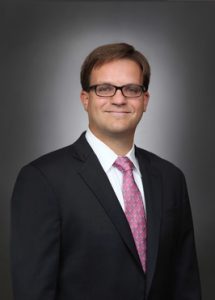Maryland's Switch From Electronic to Paper Ballots Could Set Stage for Georgia
A federal case in Atlanta overseeing a push for paper ballots in the November election includes an affidavit from a Maryland election judge, who said the switch to paper ballots there made the elections easier to conduct.
August 10, 2018 at 12:05 PM
8 minute read
 Bruce Brown, Atlanta attorney (Photo: John Disney/ALM)
Bruce Brown, Atlanta attorney (Photo: John Disney/ALM)
Attorneys for Georgia voters asking a federal judge to junk the state's electronic voting system in favor of paper ballots say the switch is feasible on short notice since Maryland did it in 2016.
In an affidavit attached to a motion asking U.S. District Judge Amy Totenberg to order Georgia to convert to paper ballots by Nov. 6, an election judge in Prince George's County, Maryland, said the paper ballot system is “far easier and faster to set up, manage, and close down” than Maryland's old electronic voting machines—the same ones that are still used in Georgia.
The county, which borders Washington, D.C., has more than 900,000 residents. Fulton County, Georgia's most populous county, has just over 1 million residents.
Maryland made the switch in 2016, about two months before its April 2016 primary.
On Tuesday, Totenberg directed attorneys representing the nonprofit Coalition for Good Governance and several Georgia voters to show her whether ordering Georgia to convert to paper ballots is feasible for the state's 159 counties and whether it would compromise the integrity of the November election.
An affidavit by Rebecca Wilson, a Republican chief election judge in Prince George's County, Maryland, included with the injunction motion filed by the coalition's Atlanta attorney, Bruce Brown, could assuage some of the judge's concerns.
Maryland abandoned touchscreen electronic voting machines in 2016 in favor of paper ballots and optical scanners. “All of our election judges working in the polling place expressed to me that they believe paper ballots and optical scanning equipment are a more efficient approach to conduct the election,” Wilson said in the affidavit.
The Diebold Accurate Vote Touchscreen voting machines used in Maryland and Georgia require dozens of security and technical tests and a specific process to set up and close down each machine—far more than setting up two optical scanners in the Prince George's County precinct Wilson has overseen for 14 years.
“A paper ballot election is fairly simple to conduct,” and it is “far easier to monitor the physical security of the ballot scanning system” than the individual touch screen voting machines, Wilson said. “Paper ballots and ballot scanners are securely controlled. Voters never have unattended access to the voted ballots or unvoted paper ballot stock or the ballot scanning machines.”
By contrast, monitoring the touch screen electronic voting machines is “mostly security theater,” she explained. “These precautions could not prevent or detect the most dangerous type of threat to the security of the machines: the threat of insider tampering with the software on which the machines operate.”
Voters were “very happy” with paper ballots, Wilson added. Voting went “smoothly and quickly.”
In pleadings and affidavits from cybersecurity experts, attorneys for the Georgia litigants have repeatedly challenged the reliability of the antiquated touch screen machines, which have no paper audit trail to corroborate the electronic ballots cast.
Citing alarms raised by security officials last week that states, including Georgia, have already been targeted by Russian hackers, coalition attorney Bruce Brown warned in court papers filed Aug. 3 that the state's voting infrastructure has already been compromised and that, absent a return to paper ballots, the legitimacy of the November election results “will be cast into doubt.”
Microsoft terminated technical support and security patches in 2013 for the software the state currently relies on to tally votes, he said. At least two “white hat hackers”—legitimate cybersecurity specialists who test for vulnerabilities in networks—penetrated large segments of the state's election database beginning in August 2016 while it was still housed at Kennesaw State University's Center for Election Systems, according to affidavits. Although cybersecurity experts who accessed the confidential voting data alerted KSU, the data remained exposed for another seven months, Brown said.
An affidavit from the hacker who discovered and reported KSU's vulnerabilities said the information he accessed included more than 6 million names, addresses, dates of birth, driver's license numbers, and partial Social Security numbers.
Secretary of State Brian Kemp—a defendant in the case who is Georgia's Republican nominee for governor—terminated the elections contract with KSU in December. A Kemp spokeswoman said it was not the state voter registration database but rather “a misconfigured server at KSU” that she said had voter lists containing public information, training materials for new county officials and historical data.
John Salter Jr., an attorney with The Barnes Law Group who is defending Kemp's office and the state Board of Elections, declined to comment on Wilson's affidavit. The defendants' response to the preliminary injunction motion is due Tuesday.
In a pending motion to dismiss the suit, Salter argued, “Counting paper ballots by hand would be a logistic and expensive challenge, if it could be done at all by November 2018 (it cannot).”
Brown represents the coalition along with Cary Ichter of Atlanta's Ichter Davis; William Ney of Atlanta's Ney Hoffecker Peacock & Hayle; and Seattle attorney Robert A. McGuire.
 David Cross of Morrison & Foerster
David Cross of Morrison & FoersterDavid Cross of Morrison & Foerster in Washington, D.C., represents several individual Georgia voters who are also plaintiffs. He filed a companion motion to Brown's injunction on Tuesday asking Totenberg to order a return to paper ballots.
“Maybe I'm naive,” Cross said Wednesday, “but I have enough confidence in the state to get this right” if it is ordered to use paper ballots in November. He said precincts across the state already must give voters access to paper ballots if they want to cast a provisional ballot.
A provisional ballot is cast if a voter does not have one of the state's required forms of photo identification or a voter's name does not appear on a list of registered voters at the precinct where they show up to vote. Voters then have three days to show up in person at their county registrar's office with proof they are registered voters before their ballot is counted.
Cross said that, if the plaintiffs' lawyers can convince Totenberg the state's electronic voting machines and supporting software are so vulnerable to hackers that they likely deprive voters of their constitutional right to vote, “She has to order them [the state] to do something. You cannot, as a matter of law, say, 'Everyone agrees the system can be hacked; everyone agrees Russia is trying to do that. … But let's go forward [with electronic voting] because it's difficult and expensive to do something else.”
Cross said he expects state officials will argue “a parade of horribles” that could come with any return to paper ballots.
“We are already lining up folks with experience to help explain why it's doable,” he said. “Whatever challenges the state and counties may face, it's preferable to a system that can be hacked.”
But Cross also suggested the secretary of state should be ordered by the court to immediately mail paper absentee ballots with a prepaid return envelope to every registered voter in Georgia.
That proposal doesn't address a long-known security issue associated with Georgia's absentee ballots: Voters are not required to provide photo identification.
More than a decade ago, amid a legal battle over the Georgia General Assembly's passage of a voter photo identification law, Judge Harold Murphy of the U.S. District Court for the Northern District of Georgia rejected the state's arguments that people who could not easily obtain a state-issued photo ID could vote absentee.
The photo ID requirement, Murphy wrote in November 2005, “does absolutely nothing to preclude or reduce the possibility for the particular types of voting fraud that are indicated by the evidence: voter fraud in absentee voting, and fraudulent voter registrations.”
“The state imposes no photo ID requirement or absolute identification requirement for registering to vote, and has removed the conditions for obtaining an absentee ballot imposed by the previous law,” Murphy said. “In short, the voter photo ID act opened the door wide to fraudulent voting via absentee ballots.”
This content has been archived. It is available through our partners, LexisNexis® and Bloomberg Law.
To view this content, please continue to their sites.
Not a Lexis Subscriber?
Subscribe Now
Not a Bloomberg Law Subscriber?
Subscribe Now
NOT FOR REPRINT
© 2025 ALM Global, LLC, All Rights Reserved. Request academic re-use from www.copyright.com. All other uses, submit a request to [email protected]. For more information visit Asset & Logo Licensing.
You Might Like
View All
A Plan Is Brewing to Limit Big-Dollar Suits in Georgia—and Lawyers Have Mixed Feelings
10 minute read
On The Move: Kilpatrick Adds West Coast IP Pro, Partners In Six Cities Join Nelson Mullins, Freeman Mathis
6 minute read

Did Ahmaud Arbery's Killers Get Help From Glynn County DA? Jury Hears Clashing Accounts
Trending Stories
Who Got The Work
J. Brugh Lower of Gibbons has entered an appearance for industrial equipment supplier Devco Corporation in a pending trademark infringement lawsuit. The suit, accusing the defendant of selling knock-off Graco products, was filed Dec. 18 in New Jersey District Court by Rivkin Radler on behalf of Graco Inc. and Graco Minnesota. The case, assigned to U.S. District Judge Zahid N. Quraishi, is 3:24-cv-11294, Graco Inc. et al v. Devco Corporation.
Who Got The Work
Rebecca Maller-Stein and Kent A. Yalowitz of Arnold & Porter Kaye Scholer have entered their appearances for Hanaco Venture Capital and its executives, Lior Prosor and David Frankel, in a pending securities lawsuit. The action, filed on Dec. 24 in New York Southern District Court by Zell, Aron & Co. on behalf of Goldeneye Advisors, accuses the defendants of negligently and fraudulently managing the plaintiff's $1 million investment. The case, assigned to U.S. District Judge Vernon S. Broderick, is 1:24-cv-09918, Goldeneye Advisors, LLC v. Hanaco Venture Capital, Ltd. et al.
Who Got The Work
Attorneys from A&O Shearman has stepped in as defense counsel for Toronto-Dominion Bank and other defendants in a pending securities class action. The suit, filed Dec. 11 in New York Southern District Court by Bleichmar Fonti & Auld, accuses the defendants of concealing the bank's 'pervasive' deficiencies in regards to its compliance with the Bank Secrecy Act and the quality of its anti-money laundering controls. The case, assigned to U.S. District Judge Arun Subramanian, is 1:24-cv-09445, Gonzalez v. The Toronto-Dominion Bank et al.
Who Got The Work
Crown Castle International, a Pennsylvania company providing shared communications infrastructure, has turned to Luke D. Wolf of Gordon Rees Scully Mansukhani to fend off a pending breach-of-contract lawsuit. The court action, filed Nov. 25 in Michigan Eastern District Court by Hooper Hathaway PC on behalf of The Town Residences LLC, accuses Crown Castle of failing to transfer approximately $30,000 in utility payments from T-Mobile in breach of a roof-top lease and assignment agreement. The case, assigned to U.S. District Judge Susan K. Declercq, is 2:24-cv-13131, The Town Residences LLC v. T-Mobile US, Inc. et al.
Who Got The Work
Wilfred P. Coronato and Daniel M. Schwartz of McCarter & English have stepped in as defense counsel to Electrolux Home Products Inc. in a pending product liability lawsuit. The court action, filed Nov. 26 in New York Eastern District Court by Poulos Lopiccolo PC and Nagel Rice LLP on behalf of David Stern, alleges that the defendant's refrigerators’ drawers and shelving repeatedly break and fall apart within months after purchase. The case, assigned to U.S. District Judge Joan M. Azrack, is 2:24-cv-08204, Stern v. Electrolux Home Products, Inc.
Featured Firms
Law Offices of Gary Martin Hays & Associates, P.C.
(470) 294-1674
Law Offices of Mark E. Salomone
(857) 444-6468
Smith & Hassler
(713) 739-1250






